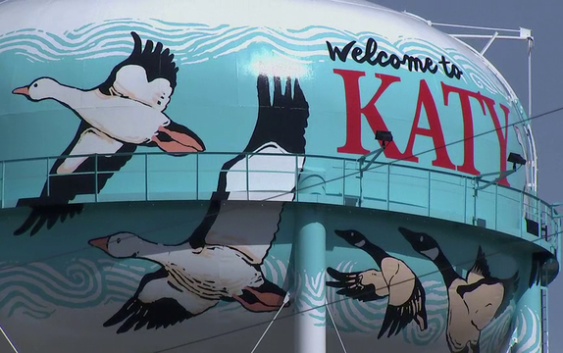- National memorial to honor NC firefighter who died on duty during Hurricane Helene
- Gov. Josh Stein extends State of Emergency for western NC wildfires
- Gov. Stein extends state of emergency for NC wildfire threat
- Governor Stein extends state of emergency for NC wildfire threat
- Governor Stein extends emergency in 34 NC counties amid wildfire threat
A brief history of Katy, Texas

KATY, Texas (FOX 26) – Located just miles from Houston, around 14,000 people call the City of Katy home.
The city is located in Harris County, Fort Bend County and Waller County. The borders of all three counties intersect in Katy’s Thomas Park.
What was once just wide-open prairie has under gone more than a century of growth to become the city it is today.
Here’s a brief timeline of the city’s early history, according to the City of Katy.
The Beginning
Longhorn cattle, deer, wolves, buffalo, wild ducks and geese were among the animals that could be found in the prairie, which was the hunting ground of the Karankawa Indian tribes.
1872
The earliest known settlement was known as Cane Island. It was named for a creek that runs through the area.
1895
J.O. Thomas, L.C. Luckel and R.M. Cash laid out the town site of Katy. The name is believed to have possibly come from the Missouri-Kansas-Texas Railway or “MKT” that ran through the area.
1896
A post office was opened.
1900
The hurricane of 1900 destroyed many buildings in Katy.
Early 1900s
Citizens rebuilt after the hurricane. Katy continues to grow. A school was built and churches were formed. Rice, peanuts and cotton were farmed.
1918
The Katy Independent School District was formed. Today, the district serves more than 60,000 students.
1934
A gas field was discovered, leading to the digging of wells.
1945
The City of Katy was formally incorporated.
Today, historical artifacts, photographs, and structures offer a glimpse into Katy’s past. Many are on display for the public to view in Katy. The Katy Heritage Museum has has artifacts from the city’s agricultural and pioneering history. Katy Heritage Park is the site of several restored historical buildings. The public can tour them on select days.